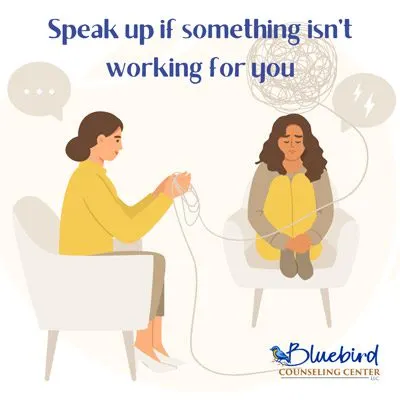
Navigating Your Therapy Journey: How to Address When Your Therapist Isn’t the Right Fit
In the world of mental health, finding the right therapist is a crucial step in your healing journey. However, sometimes you might feel that your therapist isn’t the best fit for your needs. It’s essential to know that this is okay, and addressing it can be an important part of your personal growth. Here’s how to navigate this situation effectively:
Understanding the Role of Your Therapist
First and foremost, it’s vital to recognize that therapists are there to support you, not the other way around. Their primary goal is to facilitate your growth and wellbeing. Therapy is a collaborative effort, and it’s all about finding what best serves you.
The Importance of Being Honest
If your experience with your therapist isn’t aligning with your expectations, be open about your feelings. Whether through email, a phone call, or in-person discussions, share your concerns with your therapist. An open dialogue is crucial for both parties. Remember, therapists aren’t mind readers; they need to know how you’re feeling to adjust their approach accordingly.
Communication is Key
It’s important to realize that therapists don’t know what they don’t know. By expressing your concerns, you might uncover misunderstandings or communication gaps. This collaborative communication can enhance the therapeutic process and lead to a deeper understanding on both sides.
Prioritizing Your Experience
Your experiences and feelings matter. Therapists are professionally committed to acting in your best interest. They want to create a safe and supportive environment for you, and that includes ensuring you feel heard and understood.
Exploring Options with Your Therapist
If, after discussing your concerns, you both conclude that the fit isn’t quite right, know that this is a common experience. Your therapist can offer referrals to other professionals who may align more closely with your needs. This proactive step helps ensure you continue your journey toward mental health and wellness under the guidance of the right support.
Don’t Lose Hope
Leaving a therapy relationship doesn’t mean that therapy doesn’t work. On the contrary, it signifies your commitment to finding what’s best for you. Therapy is meant to empower you, and sometimes that means recognizing when to find a different match.
Conclusion
Your healing journey is unique, and it’s essential to advocate for your needs along the way. Every step you take, including addressing concerns about your therapist, is a step toward better understanding yourself and achieving your personal growth goals.
Have you had an experience where you needed to address concerns with your therapist?
#BluebirdCounselingCenterLLC #Bluebirdcounselinglititz #counseling #therapy #lititz #mentalhealth #TherapyJourney #MentalHealthMatters #FindingYourFit

